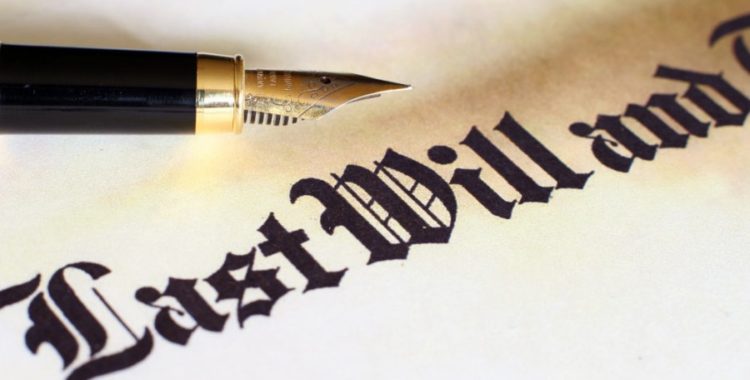What should I expect when I’m creating an estate plan?
The first thing many people say when they hear that we are estate planning lawyers is, “but I don’t have an estate!”
You may not own a vast “estate” like the enormous mansions the word calls to mind, but almost everyone has an estate. Merriam-Webster defines an estate as “the assets and liabilities left by a person at death.” Basically anything a person owns in his or her name alone (cars, houses, bank accounts, debts) becomes part of his or her estate when they die. It’s our job to guide you in how to marshall and distribute your assets after you pass and how to pay off any necessary debts from those assets.
The process of creating an estate plan is pretty painless. We typically begin with an initial meeting with our clients that lasts about an hour. In the meeting, we first ask our clients for some biographical information— a bit of background about them, their job, and their family. For example, we need to know if a client has minor children, as they will likely need to name Guardians and Trustees in their Will to look after their children and their children’s assets should our client pass away. If a couple is on a second marriage and each party has children from a prior relationship, we help them plan to best take care of one another and their biological children and their stepchildren.
Next, we ask our clients to review their assets with us so we can best guide them in their planning, as different assets pass in different ways. For example: a house owned by a married couple “jointly as tenants by the entireties” passes via the deed automatically by operation of law when the first spouse passes; a life insurance policy or retirement account passes to the designated beneficiary on the account or policy (presuming you have designated a beneficiary!); a bank account with no beneficiary or “payable on death” designation passes as directed by a person’s Will through their estate. We are also interested in any debts our clients may have, as moving and retitling assets may protect them from debt collection after death.
After getting a snapshot of our clients’ lives and financial situation, we ask them who they would name as fiduciaries under their Will. Who will handle the administrative aspects of taking the Will to the courthouse, gathering all of the assets, selling and/or distributing property, paying off all of the debts, and filing income tax and inheritance tax returns? Who would oversee money you left to a person in trust; either because the beneficiary was a minor, had special needs, or lacked the ability to responsibly handle an inheritance? Who would take your kids if something happened to you? This is typically the most difficult part of our meeting, because it can be difficult to decide who you want to fulfill these roles. Couples often delay getting an estate plan because they reach an impasse when it comes time to agree on fiduciaries. More than one client has been immensely relieved to hear that couples do not need to name the same people under their Wills.
Sometimes our clients can’t decide who to name as their Executor, Trustee, or Guardian under their Will in our initial meeting. Nothing is written in stone after we first meet, so we give our clients time to think about it and get back to us, sometimes even sending them drafts with blanks to help them in considering who they wish to nominate.
After we’ve filled in the fiduciaries under a Will, we ask about how our clients wish to see their property distributed upon their death. Most people come in with a general sense of what they want to see happen to their property and their money. If they have young children, we ask them to consider at what age they think their kids should have full, unfettered access to their money. Prior to that age, we will draft a Testamentary Trust to hold the money where it will be overseen by a responsible adult of our client’s choosing.
The Will is mostly complete at this point, but there are a few other documents we discuss in the initial meeting as well. We ask our clients to consider who they would want making legal and/or financial decisions for them if they needed help in those areas due to travel, an accident, or cognitive decline. We ask our clients who they would want to make health care decisions for them if they could not make them for themselves. And we ask our clients what they would want their end of life care to look like if they were in a coma with no hope of recovery. Some people feel strongly that they would not wish to live with that quality of life while others would want all possible heroic measures taken. We memorialize those choices through Durable General Powers of Attorney, Health Care Powers of Attorney, and Living Wills.
Finally, we quote our clients a flat fee for our work. We have done a lot of estate planning at Herr, Potts & Potts and can gauge the complexity of a plan and the time required to draft it for our clients after our first meeting. Clients won’t have to worry about receiving astronomical, unexpected bills from us because we provide an upfront fee to them in writing after our initial meeting.
Once we have all of the information necessary to begin an estate plan, we send our clients drafts to review. Once the drafts meet with their approval, our clients return to the office to execute the finished documents with all of the appropriate formalities to make them valid and self-proving, including being witnessed by two individuals and sealed by a Notary Public.
Without fail, our clients always express relief at having finished the process of completing their estate plan. Many people have been putting it off for years and are quite happy that it is done. As with many things, in estate planning an ounce of prevention is worth a pound of cure. Having a well drafted plan will alleviate many burdens on your loved ones if you are sick or after you pass. Knowing your wishes and having them committed to writing is a great gift to give your family and friends, so they can focus on your care and their grief during difficult situations.
At Herr, Potts & Potts, we feel privileged to help our clients in planning for their future and hope we can help you soon. If you have questions or are ready to get started, please reach out to us! At Herr Potts and Potts, located in Wayne and West Chester and serving southeastern Pennsylvania, our attorneys are prepared to help you with your estate plan. To schedule a meeting, contact us at (610) 254-0114.



